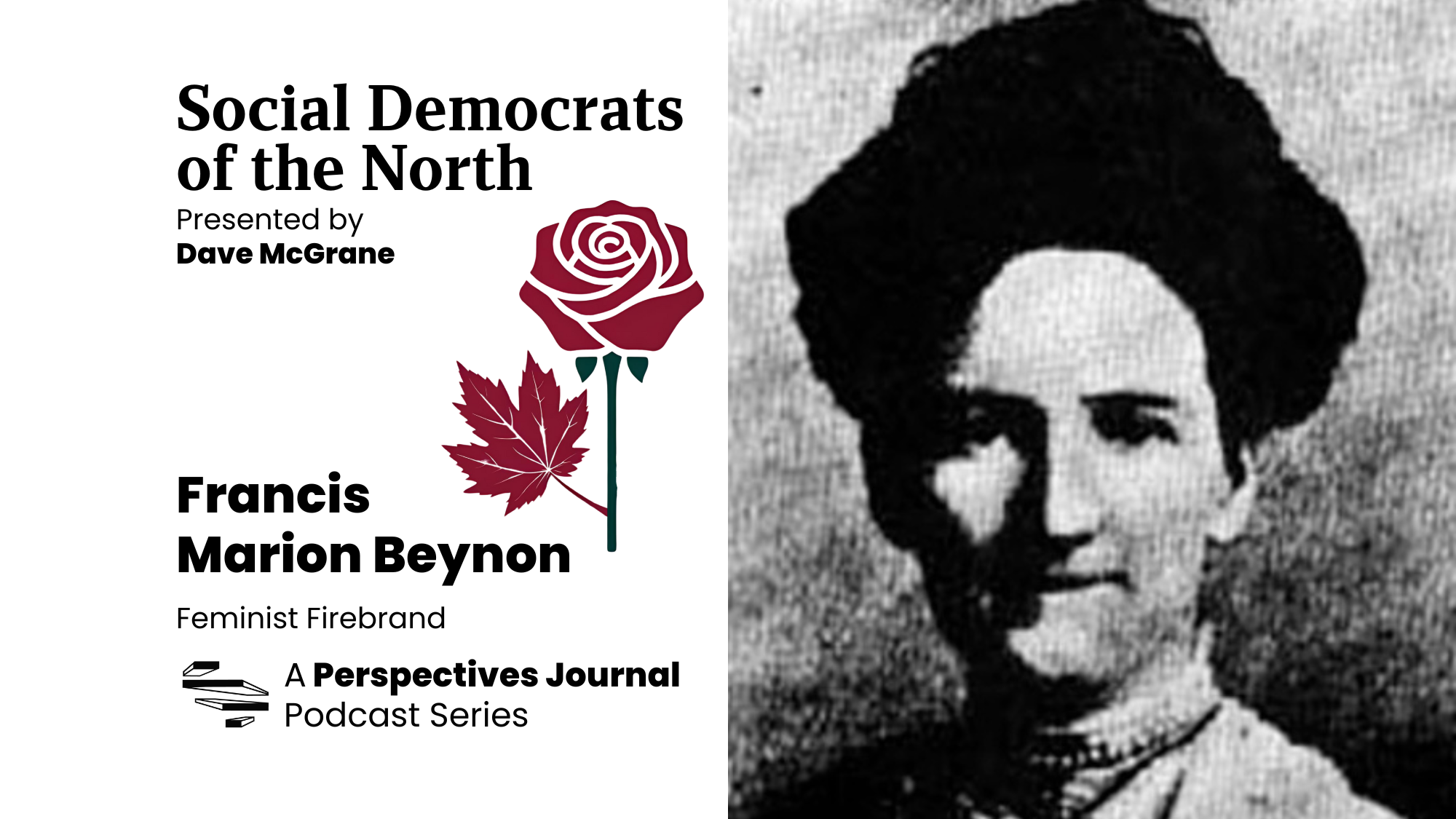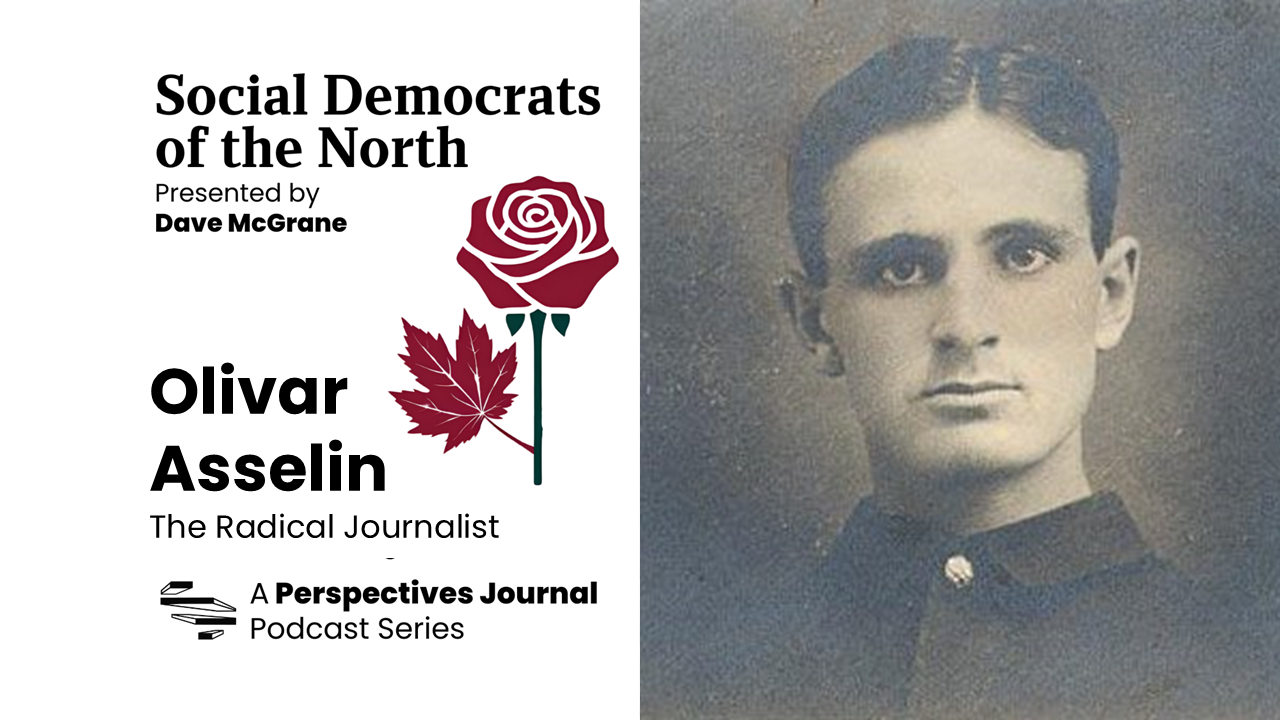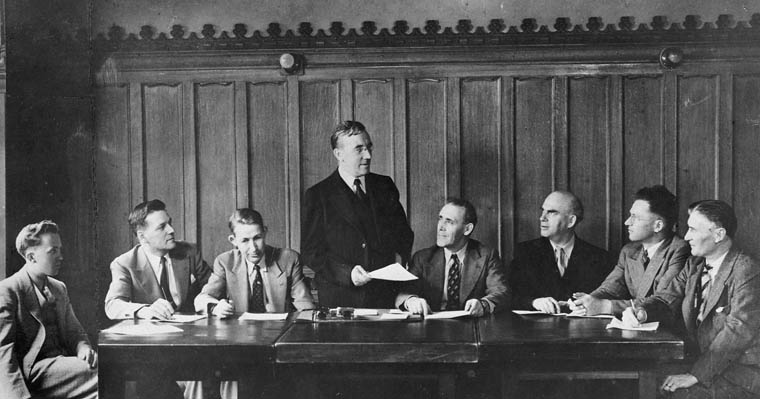Québec’s left-wing sovereigntist opposition party, Québec solidaire (QS), held its 2025 convention this past November 7-9 in Québec City. Delegates at the convention elected MNA Sol Zanetti as the party’s new co-spokesperson, alongside MNA Ruba Ghazal to continue as QS co-spokesperson, and ratified a new policy programme to inform future platform development. As social democrats across Canada reflect on how to revive the left in dark times, QS’s history and renewal efforts can offer some food for thought.
The CCF-NDP has always depended on a core of activists that see themselves as engaged in a ‘mass party’ project. Compared to the contemporary NDP, QS has the advantage of falling back on a mass party culture that is overall much more vibrant. At its foundation in 2006, QS took innovative steps to challenge late-19th century sociologist Roberto Michels’ iron law of oligarchy, asserting that elite rule is inevitable, and addressed the evergreen issue of caucus accountability in the practice of parliamentary socialism. Foremost among these decisions is the fact that QS does not have a leader; the party maintains gender parity between two ‘spokespeople.’ The QS convention delegates vote on which spokesperson will be designated as candidate for premier ahead of general elections.
QS’s mass party culture is closely linked to the presence of a clear and ambitious collective vision, developed and re-developed by the membership at regular intervals. While the federal NDP ended the practice of high-level policy and political manifestoes after 1983, QS continues to produce a “programme” roughly every 5 years. This document sets out the overall agenda of the party and is developed through an extensive and highly structured process of consultation and drafting in which the provincial executive actively engages riding associations. By Canadian standards, QS’s 2025 convention was a shockingly studious affair. Delegates carefully read their convention kits and passed many amendments to the executive’s draft programme.
Quebec’s 2012 student strikes against university tuition hikes saw hundreds of thousands of demonstrators block the streets of Montréal for several months. The veterans of this 2012 movement have been a core cadre of QS personnel and volunteers, choosing to invest in party politics in the years following the strike. Their turn “from the streets to the state” recalls the turn of early 20th century labour activists like J.S. Woodsworth, who would go on to form socialist political parties in the aftermath of the 1919 Winnipeg General Strike.
After a period of growth from its 2006 foundation, to a caucus of 11 seats elected in the National Assembly in the 2022 general election, QS has now fallen to a low point of mobilization. QS’s quagmire is can be largely attributed to the resurgence in popularity of the Parti québécois (PQ) since 2022 where it was superseded by QS after winning only 3 seats. The PQ’s rightward tack in the 2000s and 2010s had been a major force behind the creation and growth of QS. However, QS activist morale suffered after campaigning on a relatively centrist platform in 2022, which some saw as an ill-conceived staff-driven effort to court PQ voters.
As in the NDP, tensions over the role of staff and the use of mainstream political marketing practices simmer below the surface in QS. Recent internal disputes and activist demoralization within the party could be attributed to the perception that previous QS co-spokesperson, MNA Gabriel Nadeau-Dubois, acted more like a traditional party leader, and that caucus members had become reactionary to mainstream media opinion on controversial subjects. Some notable episodes indicating this internal tension include Nadeau-Dubois’ public falling out with fellow QS caucus member MNA Catherine Dorion, the resignation of his co-spokesperson Émilise Lessard-Therrien in 2024, and the caucus’ arguably half-hearted defence of MNA Haroun Bouazzi when he faced blowback from calling out racism in the National Assembly late last year. This spring, Nadeau-Dubois opted to resign as co-spokesperson, hoping for party renewal.
If QS successfully turns the page on this period, it will be because it has reconnected to its roots, and reforged a connection with its core progressive constituencies as indicated by the recent direction set at the party’s recent convention. Renewal could draw the sovereigntist Gen Z electorate away from the PQ by showing such a contrast in values, as the old party focuses on competing with the conservative Coalition Avenir Québec (CAQ) in francophone majoritarian identity politics. The departure of Rosemont MNA Vincent Marissal from caucus following the convention underscores the PQ’s momentum and the ongoing challenges facing QS in this moment.
Nevertheless, the November QS convention offered some reminder of how mass party politics can re-invigorate the left-wing parties. From caucus members to delegates to co-spokespersons Ghazal and Zanetti, speaking at the debate microphone, the language of “transformation” and even “revolution” was commonly used. The strong Palestinian solidarity expressed at the convention also helped to drive a sharp contrast between QS and its PQ rivals on the centre-left, and the Liberals and CAQ at the centre and right-wing. Unlike the rhetoric espoused by mainstream Québec parties, QS repeatedly denounced the scapegoating of immigrants and forcefully affirmed the sovereignty of indigenous peoples to full applause from the convention floor. Delegates also voted to remove a strongly worded passage on the importance of learning French from the QS programme.

A major strength for Zanetti as co-spokesperson has been his ability to connect emotionally with the electorate. NDP strategists have often believed that emotional connection is best achieved by re-telling simple personal anecdotes—for example, about a constituent in dire straits, or about the leader’s family history. Organizing academic Marshall Ganz is sometimes cited as the template to follow in drawing citizens to action, however, Zanetti appears to draw his organizing from elsewhere. Inside the black box of ‘Quebec separatism’ lives Canada’s only real secular utopian tradition. Zanetti evokes the need to rediscover joy in political organizing, and to build a movement rooted in the collective passion of dreamers — those he calls les crinqués. This appeal to passion echoes the language of the 1946 Refus global manifesto, in which artist Paul-Émile Borduas spoke of joy, love, and rupture with established power structures, as well as the need to “[prendre] allègrement l’entière responsabilité de demain.” Zanetti, in his convention remarks, recounted how an elderly veteran once told him that this passion was the only true rampart against fascism.
The founding generation of the NDP knew how to get people fired up on a vision of moral cause. Tommy Douglas, as CCF Saskatchewan Premier and the NDP’s first leader, led a party built in United Church basements that preached the just and egalitarian values of Christian socialism. The same vision then was still expressed as late as the 1970s when Douglas called for a permanent war against poverty and exclusion. Only then could Canada truly be, what he called, “a great land.” Even the supposedly centrist CCF Winnipeg Declaration of 1956 that replaced the party’s programme set by the Regina Manifesto, still called capitalism “basically immoral,” and platforms from the 1960s still spoke to ‘moral purpose’ for national political life. Zanetti and Ghazal, as QS party co-spokespersons, still challenge Quebec and the rest of Canada to consider that this type of politics can still be practiced in 2025. QS may still be able to capture the imaginations of progressive Quebecers ahead of the 2026 general election.





